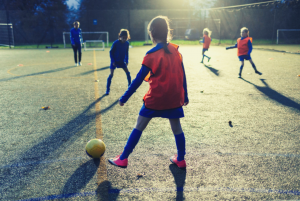 Healthy kids have great reserves of energy, heat and circulation, which creates an efficient body when it comes to the healing process. Whether its post-sport recovery, a sprain, strain or broken bone, the immune system has the building blocks for repair. However, there are some key food groups & nutrients that help the body. For highly active kids, or those that may not enjoy a diet with a broad range of foods, supplementation can be useful to supercharge their healing.
Healthy kids have great reserves of energy, heat and circulation, which creates an efficient body when it comes to the healing process. Whether its post-sport recovery, a sprain, strain or broken bone, the immune system has the building blocks for repair. However, there are some key food groups & nutrients that help the body. For highly active kids, or those that may not enjoy a diet with a broad range of foods, supplementation can be useful to supercharge their healing.
Protein foods – these are the building blocks of connective tissue – bone, ligament, tendons, skin & blood. They help build muscle and boost stamina. Regular intake of proteins such as meats, eggs, beans & lentils, quinoa, nuts & seeds is essential for great health & growth.
Healthy fats – known as brain food, fats also reduce inflammation. Try giving regular serves of avocado, raw nuts & seeds, coconut oil, oily fish (salmon, sardines, mackerel), or even a healthy drizzle of olive oil on meals when serving!
Hydration – water is essential for staying sharp, flexible and energised. Keep water intake up through the day, or try sliced citrus fruit, fresh herbs or cold steeped herbal teas for extra minerals and flavour that the kids enjoy.
Supplements
Magnesium is known as the great relaxer! Think muscle tension in any area of the body (stiffness, tension, tightness, headaches, cramping). Some forms of magnesium work better than others, so its important to get professional advice to help get the right match for symptoms. Food sources include almonds, cashews, sunflower seeds, raw cacao, brown rice, oats, quinoa, eggs, green leafy veg and tofu.
Vitamin C helps build collagen which is important for healing and repair, e.g. injuries to tendons and ligaments (such as sprained ankles). Having enough Vitamin C means the area can completely repair rather than suffer further injury when pushed. When supplemented, it should be dosed in small amounts and often, and different forms are suitable for individuals depending on digestive health. Great sources of Vitamin C are berries, citrus fruits, kiwi, pineapple, broccoli, capsicum & potato skins.
Zinc is also important for repair, and elasticity – it works together with Vitamin C to support healing. Zinc foods include pumpkin seeds, eggs, ginger (and oysters!)
Turmeric is a well known and fantastic anti-inflammatory, and is useful when both eaten or in supplement form. It is advisable to get advice on how much to dose your child depending on their weight and health needs, but can certainly be safely used in cooking, eg stirring into curries, rice, smoothies & juices, hot milky drinks, or eaten off the spoon with some honey!